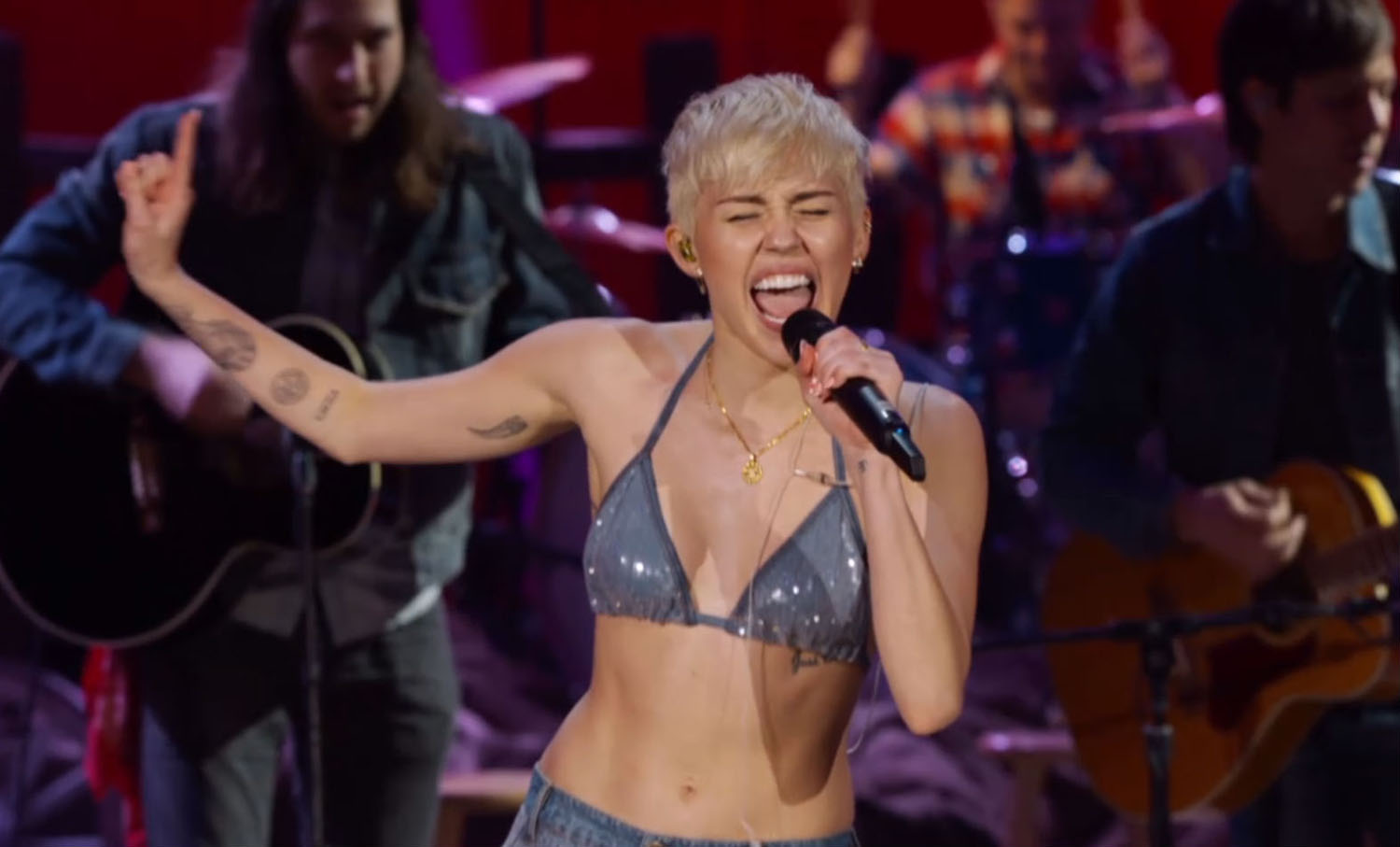
Miley Cyrus is no Shinzo Abe, but that doesn’t mean the pop stars on this year’s TIME 100 don’t get political. In fact, the one thing this year’s most influential pop artists have in common is a shared interest in women’s rights. But Beyoncé, Miley and Pharrell aren’t just accidental feminists — they’ve actively promoted women’s empowerment through their songs, videos, and interviews, making feminism a explicit part of their respective public images. With their help, this was the year of pop feminism.
(It’s worth noting that Carrie Underwood also made the list of top musicians, but her domination last year wasn’t about the monolithic chart saturation that made the other three so significant. She’s also shied away from identifying herself as a feminist : the star of NBC’s record-breaking live production of The Sound of Music has said she “wouldn’t go so far as to say I’m a feminist, that can come off as a negative connotation” — though she insists she’s “certainly a strong woman.”)
For the three on the list who had blockbuster releases — Beyoncé, Miley Cyrus and Pharrell Williams — feminism is the new frontier, a realm that demands exploration. For the former two, they aren’t considered feminists just because they’re influential women; it’s a central component of their work. You could even say that feminism is to 2014 pop stars what sex was to 1964 rockers: it’s nothing new, but it’s suddenly become electrifying.
Queen Bey is the most obvious example. Her surprise video album was the biggest music story of 2013 (and the fastest-selling album in iTunes history), but it wasn’t just the marketing genius that drove it to the top of the Billboard charts. The overtly feminist videos spoke directly to a generation working to embrace female self-empowerment as a political and social priority. There was nothing screechy about Beyoncé’s message. She presents stylishly nuanced ideas about beauty in “Pretty Hurts,” love in “Drunk in Love” and motherhood in “Blue,” and even includes a lengthy quote from Nigerian feminist author Chimamanda Adichie in “Flawless.”
Beyoncé rarely says the word “feminist,” but she lets Adichie define it as “a person who believes in the social, political, and economic equality of the sexes.” That definition happens right in the middle of her song. Show me another pop star who interrupts their singing to quote some social theory, and I’ll strip down and climb onto a wrecking ball.
Miley Cyrus is a different story. Pop’s most controversial diva had lots of moms tut-tutting about her twerking at the VMAs and lots of critics outraged at her racial politics, but she says her post-Disney schtick embraces a new kind of female sexuality that has nothing to do with what men want. When’s the last time you saw a foam finger in porn? Never.
If Beyoncé used feminism as the new sex, Miley insists she’s using sex as a form of feminism. “I’m one of the biggest feminists in the world because I tell women not to be scared of anything,” she told BBC’s Newsbeat. “I don’t actually walk around all day twerking with my tongue out dressed as a teddy bear.” For Miley, her nudity in “Wrecking Ball” was never about objectification — it was about fearlessness. Whether you agree with her or not, she’s certainly outspoken about her beliefs.
Pharrell’s LP G I R L might seem only superficially feminist in that it’s roughly a concept album in praise of women, but the hat-loving Oscar nominee has been publicly dedicating his new hit album to modern women in a string of interviews. And while the nod might sound condescending coming from a co-creator of “Blurred Lines” (a song known as much for its problematic intimations as it is for being catchy), Pharrell actually gets real about feminist politics when he talks to the media. “[Women] don’t get paid as much as men do — that needs to change,” he said in an interview on Good Morning America. “We’re a species that has a Martian rover on the surface of Mars, but yet we’re still the same species that tries to tell women what they can and can’t do with their bodies.” That’s a clear feminist statement — and one that not all male artists would be willing to make.
He’s also got some opinions about the 2016 Presidential election. “Let me tell you why Hillary’s going to win,” he told GQ. “when you think about a night where there’s late-night talk-show hosts and it’s mostly women, that’s a different world. Right? A world where seventy-five percent of the prime ministers and the presidents were women: That’s a different world. That’s gonna happen, and it’s gonna happen when Hillary wins.”
Pharrell might not have Beyoncé’s nuance or Miley’s boldness, but he represents a brand of pop feminism that’s not just for women anymore. And even if his dedication to women’s issues feels reductive (and some argue, fairly, that men shouldn’t need a gold star for believing in equality), it’s still a sign that feminism is pop’s politics du jour, and it’s not by accident.
Sure, this was the year where feminism and pop intersected in a big way — and maybe that’s made the discussion fashionable. But who cares? It’s moving the conversation forward, so girls — and the men who respect them — actually can run the world.
More Must-Reads From TIME
- The 100 Most Influential People of 2024
- The Revolution of Yulia Navalnaya
- 6 Compliments That Land Every Time
- What's the Deal With the Bitcoin Halving?
- If You're Dating Right Now , You're Brave: Column
- The AI That Could Heal a Divided Internet
- Fallout Is a Brilliant Model for the Future of Video Game Adaptations
- Want Weekly Recs on What to Watch, Read, and More? Sign Up for Worth Your Time
Write to Charlotte Alter at charlotte.alter@time.com